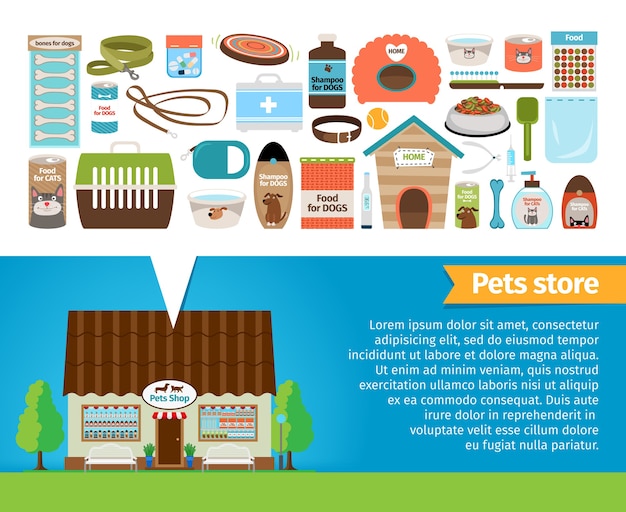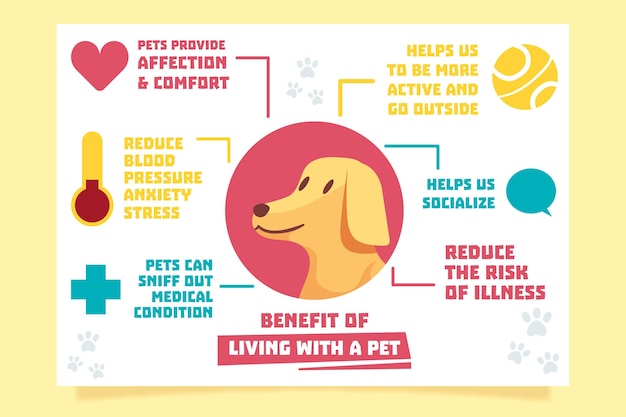Pet First Aid Kit Essentials Every Owner Needs


Pet First Aid Kit Essentials Every Owner Needs
Emergencies can happen when you least expect them, especially in the unpredictable climate of South Texas. Whether you are at home in Corpus Christi or out exploring the beautiful parks and beaches with your furry friend, being prepared for sudden pet injuries or illnesses is essential. At South Texas Veterinary Urgent Care, located at 4133 Gollihar Road, Corpus Christi, TX 78411, we frequently see cases where quick action with a pet first aid kit made all the difference before pets arrived for urgent care.
In this guide, you’ll discover what every pet owner should have in a pet first aid kit, why these emergency supplies for pets matter, and how they can help you manage minor emergencies until you can access professional care. We will also explain how to recognize when the situation calls for the immediate attention of an emergency vet near me, and why our clinic welcomes walk-ins with no appointment needed. Pet parents in Corpus Christi and surrounding communities can rest assured that our veterinary team is here when regular clinics are closed or unavailable.
Let’s explore the essentials of building a pet first aid kit and how you can use it to keep your pet safe and comfortable during urgent situations.
Recognizing When a Pet First Aid Kit Is Needed
Every pet owner dreads the moment when their dog suddenly yelps in pain or their cat starts vomiting unexpectedly. Knowing when to reach for your pet first aid kit is crucial. Minor injuries and sudden illnesses can happen at any time, whether your pet steps on a sharp object, gets stung by an insect, has a sudden allergic reaction, or starts showing signs of a wound or abscess.
Key warning signs that indicate you may need to use your emergency supplies for pets include visible bleeding, swelling, limping, excessive scratching, difficulty breathing, vomiting, or diarrhea. Other situations such as snake bites, lacerations, or sudden changes in behavior can also signal the need for immediate action. If your pet is involved in a scuffle at the dog park or explores an area with thorny plants, you might spot cuts, scrapes, or swelling that require prompt attention.
In South Texas, environmental factors such as heat, insects, and wildlife encounters make it even more important to be prepared. For instance, snake bites and allergic reactions are not uncommon and require immediate stabilization before you can reach an urgent care vet near me. Having a pet first aid kit on hand allows you to respond calmly and effectively until you arrive at our Corpus Christi clinic.
Why Emergencies Happen: Causes and Contributing Factors
Understanding why emergencies arise helps you anticipate risks and tailor your pet first aid kit to your unique environment. Pets are naturally curious and can get into trouble quickly, especially in active households or outdoor settings common throughout Corpus Christi and the surrounding region.
Common causes of pet emergencies include accidental ingestion of foreign objects, exposure to toxins, insect bites, snake bites, lacerations from sharp objects, allergic reactions to new foods or environmental allergens, and sudden illnesses like vomiting or diarrhea. In the heat of South Texas, heatstroke and dehydration are additional risks, particularly for dogs who spend time outdoors.
The region’s climate, with its warm temperatures and diverse wildlife, increases the likelihood of certain emergencies. Encounters with snakes or insects can happen during walks or hikes, while hot pavement can cause burns or paw injuries. Even indoor pets can experience accidents such as falls or bites from other animals. Recognizing these risks is the first step toward protecting your pet by assembling the right emergency supplies for pets in Corpus Christi.
What Should Go in Your Pet First Aid Kit? Essentials for South Texas Pet Owners
A well-stocked pet first aid kit can be a lifesaver in critical moments, offering you the tools to stabilize your pet before you can reach professional veterinary help. While your kit may be tailored to your pet’s specific needs and local risks, there are several essentials every owner should consider.
Your pet first aid kit should include items such as gauze pads and adhesive tape for wound care, antiseptic wipes or solutions to clean injuries, non-stick bandages to cover wounds, and blunt scissors for cutting tape or fur. Tweezers are invaluable for removing splinters, ticks, or thorns, while disposable gloves help you maintain hygiene during first aid. An oral syringe or turkey baster can be used to administer water or medication if instructed by your veterinarian.
Other important items to have in your emergency supplies for pets are a digital thermometer for monitoring temperature, a soft muzzle for safe handling if your pet is in pain, and a pet-safe wound ointment. Include a list of emergency contacts, including your veterinarian and the nearest urgent care clinic like South Texas Veterinary Urgent Care, as well as a copy of your pet’s medical history and vaccination records.
In South Texas, consider adding items that address local hazards, such as a tick remover, cooling packs to manage heat exposure, and a snake bite kit. If your pet has known allergies, keep prescribed antihistamines or an epinephrine injector with clear instructions from your veterinarian. For more detailed information about managing allergic reactions, you can refer to our page on veterinary care for allergic reactions.
How to Use Your Pet First Aid Kit: Practical Scenarios
Knowing what to do in an emergency is just as important as having the right supplies. Let’s look at a few real-life situations where your pet first aid kit can provide immediate support before you reach an urgent care veterinary clinic.
If your dog comes limping home with a bleeding paw, you can clean the wound gently with antiseptic wipes, apply a gauze pad, and secure it with adhesive tape. This helps control bleeding and prevents further contamination on the way to your veterinarian. In the event of a snake bite, keeping your pet calm and limiting movement is key while you call the clinic and prepare for immediate transport. For more guidance on this, visit our veterinary care for snake bites resource.
When your cat experiences vomiting or diarrhea, having an oral syringe and a digital thermometer on hand allows you to monitor your pet’s condition and provide fluids as instructed by your veterinary team, while you prepare to seek urgent care. You can find more information on managing these symptoms at our vomiting and diarrhea information page.
If your pet suffers a laceration or develops a swelling that appears to be an abscess, gently cleaning the area and covering it with a non-stick bandage can minimize further injury until your pet is evaluated by our veterinary professionals. For lacerations, see our laceration care information, and for abscess concerns, refer to our abscess veterinary care guidelines.
Preventing Emergencies: Steps You Can Take at Home
While a pet first aid kit is essential for emergencies, prevention is always the best medicine. By taking a few proactive steps, you can reduce the risk of accidents and keep your pet safer in everyday situations.
Begin by pet-proofing your home and yard to remove hazards such as sharp objects, toxic plants, and accessible cleaning chemicals. Supervise pets during outdoor activities, especially in areas known for snakes or stinging insects. Be vigilant about your pet’s diet and avoid giving unfamiliar foods that could trigger allergies or gastrointestinal upset.
Regular check-ups with your veterinarian, timely vaccinations, and parasite prevention are all important components of preventive pet health care in Corpus Christi. Teaching your family and children the basics of pet safety, such as not disturbing a sleeping animal or approaching wildlife, can further reduce risks.
Finally, keep your pet first aid kit in an accessible location and regularly check that supplies are up to date. Review emergency procedures with your family and make sure everyone knows the location of our urgent care clinic at 4133 Gollihar Road, Corpus Christi, TX 78411.
When to Seek Emergency Veterinary Care
Some situations go beyond what a pet first aid kit can handle and require immediate professional attention. Recognizing these moments can be lifesaving for your pet.
You should seek emergency veterinary care if your pet is having difficulty breathing, experiences severe bleeding that does not stop with pressure, displays signs of heatstroke such as excessive panting and weakness, or has been bitten by a snake or stung by multiple insects. Other red flags include sudden collapse, seizures, inability to stand, repeated vomiting or diarrhea, and large or deep wounds.
At South Texas Veterinary Urgent Care, we want you to know that walk-ins are always welcome and no appointment is needed. Our clinic is open when most regular veterinarians are closed, providing immediate care for the pets of Corpus Christi and surrounding communities. If you notice any of these warning signs, do not wait; bring your pet straight to our clinic or call us at (361) 833-6022 for guidance.
For more information about urgent situations and what to expect during your visit, explore our emergency veterinary care page and our urgent care information.
Conclusion: Be Prepared, Stay Calm, and Know Where to Turn
Having a pet first aid kit and knowing how to use it can provide peace of mind during unexpected emergencies. From wound care to managing allergic reactions, the right emergency supplies for pets in Corpus Christi can help you stabilize your companion while you seek professional help. Preparation is key; familiarize yourself with the contents of your kit, prevent accidents when possible, and always know where to find an emergency vet near me.
If your pet is experiencing an urgent medical issue, remember that South Texas Veterinary Urgent Care welcomes walk-ins and provides immediate care when you need it most. Our team of veterinarians is committed to supporting you and your pet in any emergency, day or night. For urgent care vet services in Corpus Christi, contact us at (361) 833-6022 or visit us at 4133 Gollihar Road, Corpus Christi, TX 78411.
For more information about what to do in an emergency and our full range of urgent veterinary care services, we encourage you to reach out or stop by. Your pet’s health and safety are always our top priorities, and we are proud to serve as your trusted emergency veterinarian near me in Corpus Christi and the surrounding communities.
This blog is intended for informational purposes only and is not a substitute for professional veterinary advice. Always consult with a veterinarian for specific concerns regarding your pet’s health.


















